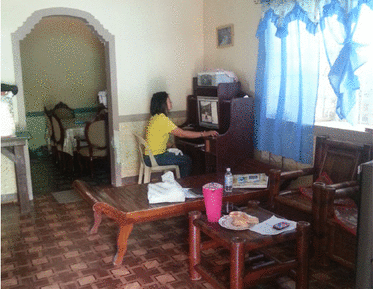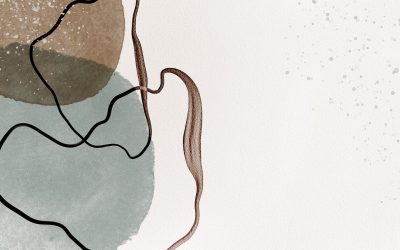When I was about to finish my PhD in Australia, I had already been thinking of visiting the Centre for Mobilities Research (CeMoRe) at Lancaster University. My intention was partly driven by my interest in meeting scholars working in the field of mobilities. Further, I wanted to know more about the Centre, which was established by the late British Sociologist John Urry, one of the pioneers of the mobilities studies. I am no stranger to the work of Urry, and the many scholars of the mobilities field. Over the past years, I have been proactive in extending the mobilities lens in the context of transnational media and communication. More specifically, I have investigated how family life at a distance is performed and constantly negotiated in an era of intense migration and mobile media. Significantly, Urry’s work has been crucial in my critical reflections on how divide, hierarchy and inequalities are interplayed through digital media use among transnational Filipino family members. Often, the use of ubiquitous smartphones and networked communications platforms becomes a practical modality to forge and sustain familial relationships that are essentially reconfigured and undermined by the uneven impacts of globalisation.
I have never thought that I will live a life of what I call a scholar on the move. Prior to becoming an academic, I was working as an Overseas Filipino Worker (OFW) in an advertising firm in Brunei Darussalam. It was then through my experiences that compelled me to enrol myself into a PhD program, with a particular goal of examining how geographically separated family members use digital media to sustain family life. As I partake into research, I led a mobile life in a different context. I moved from one place to another to conduct research. In my investigation of how transnational family members use digital media in sustaining family life at a distance, I collected data across places in Australia and in the Philippines. Such multi-sited approach of gathering data signified ways of capturing and analysing the lived conditions of my informants as created by the movements of people, places, capitals, services, and information. Further, airports, lounges, or any safe and available public spaces have become liminal spaces to process the data based on extensive data collection. Significantly, I would argue that mobilities – short and long-range – as well as stasis – temporal and permanent – reflect the many lives of contemporary scholars. In a mobile era, a scholar performs, embodies and negotiates various and interconnected forms of mobilities in order to generate and analyse data, therefore contributing to articulating a social world engendered, undermined or made complex through mobilities. And more recently, as a scholar on the move, I found myself ‘moored’ – temporarily – to one of the world’s knowledge hub on problematising the possibilities and limits of a mobile world, the Centre for Mobilities Research (CeMoRe) at Lancaster University.
I applied as a Visiting Researcher in CeMoRe, which was supported by Professor Monika Buscher, the Director of CeMoRe. With the support of my university, Deakin University, as well as the Alfred Deakin Institute for Citizenship and Globalisation where I am a member, I stayed in the centre from 10 – 27 June. During my visit, I engaged with a wide range of scholarly activities, including facilitating a reading group, presenting my work in a seminar, as well as participating in an away day session. Overall, I did enjoy delivering and participating in various activities, allowing me to learn more about approaches and techniques in conducting mobilities research as well as to rethink my approach and theorising of mediated mobilities in a transnational context. Significantly, the various engagements provided a space for networking, exchanging ideas and planning collaborative work.

My first activity in the centre was facilitating a reading group, Rethinking immobility in a mobile society. Prior to my arrival in Lancaster, I chose and assigned the journal article for the reading group, Understanding Immobility: Moving beyond the mobility bias in migration studies by Kerilyn Schewel. I specifically chose the work by Schewel because I have been thinking about and dissecting the ‘paradoxes’ and ‘contradictions’ enabled in a globalised and networked society. Such point has been reflected in the findings of my study, emphasising how transnational family members are mobilised and immobilised in many ways. In here, mobile device use is often informed and constrained by immobile gendered norms and familial expectations. Further, I also refer to immobile technological infrastructures that shape mediated movements. However, during the reading group, I was struck by Professor Buscher’s observations. More than engaging with the concept of immobility or why individuals choose to stay put, as articulated by Schewel in her work, Professor Buscher pinpointed the need to re-examine the motivations behind the use of digital media technologies among dispersed family members. She further expanded her point by illuminating the ‘pressures’ to experience proximity in a society that is being constantly re-shaped by the demands of global economies. Ultimately, my discussion with the participants of the reading group led to my assessment of the motivations and outcomes of mediated mobilities among dispersed family members in an environment where technologies, infrastructures, platforms, social structures, and economic and political systems collide.
I also presented a paper entitled, The Infrastructures of an [Im]mobile family life, in a seminar at the centre. The paper that I presented was part of the book project that I am currently working on. The manuscript is based on my PhD thesis. In the seminar, I did enjoy the critical engagement of the attendees with my presentation. First, prompted by my discussion on digital media use among families in crisis situations, Professor Sutanto shared her observations and analysis on how Indonesian people use various media tools in coping with disaster. As I listened to her, I was reminded of my book chapter that focuses on how transnational Filipino family members experience and negotiate pre, during and post-crisis situations through the use of mobile devices and networked communications platforms. Second, I was provoked by the insights shared by Dr. Yang Hu and Dr Allison Hui during my presentation. I specifically liked the probing on thinking about the concept of infrastructures as well as the suggestion on highlighting the findings of the research for the book project. Lastly, I was moved by Professor Buscher’s suggestions on further unravelling what’s gained and lost in the integration of digital media platforms into the conduct of transnational family life. This, for me, was well tied to the points raised by Dr. Hu and Dr. Hui. As such, I felt grateful for the opportunity to further rethink and refine my work in an intimate, collegial and scholarly space.
One of the best activities I attended during my visit at CeMoRe was the away day, which was held at the Ruskin Library Reading Room. The whole day activity was led by Professor Buscher, and attended by CeMoRe members. Particularly, the away day revolved around exchanging, mapping and criticising ideas on mobilising a crisis response. The session started with short introductions from the participants. Everyone talked briefly about what they are working on. Notably, Professor Sutanto shared some of her observations on how Indonesian people have been handling disasters such as an earthquake and tsunami. Some attendees also talked about how disasters are managed as well as memorialised through cultural and digital objects. Such point contributed to my own reflection on how crisis can be curated through affective contents across online platforms. Nevertheless, it was excellent to hear each and everyone’s critical stance on how individuals, communities and networked publics deal with the impacts of disasters.
The ‘fishbowl session’ was followed by a short break and writing session. Professor Buscher asked everyone to find a space and write for 45 minutes about a ‘perfect first sentence’. I did like this approach as it allowed everyone to flesh out ideas and write them. After the writing session, each participant was paired with another participant to read as well as provide feedback on each work. It was my first time to participate in such type of activity. During this time, I was able to draft my work on the performance and negotiation of crisis care at a distance among transnational families, reflecting some ideas on mobilising a crisis response. I also received critical feedback during the day, unpacking the asymmetries, tensions and politics that exist in the mobilisation of tactics in handling crisis. I highly recommend such approach especially for scholars who are working on developing ideas and collaborating on a particular project. The away day culminated with everyone mapping and visualising some ideas for a collaborative work. Using coloured pens and papers to visualise ideas was a great technique to present and converse about ideas, approaches and case studies. Ultimately, the away day was a productive day that pooled together scholars in planning and working on a collaborative work.

My stay at CeMoRe was nothing short of wonderful experiences – personal and scholarly. It would not have been made possible without the support and kindness of the staff and scholars in the centre. First, I am very thankful to the professional staff, Emily Trowell and Rachel Verrall, who assisted me prior and during my visit. Emily was generous enough to give me a tour of both the Centre and the University, an activity which helped me to adjusting in a new environment. Second, it was such a delight to connect and converse with Dr. Hu on many occasions. We had a lovely time exchanging ideas as well as thinking about collaborative work. Further, I was very fortunate to be invited to the gathering of the members of the Migrancy Research Group. It was through such opportunity that I met and connected to some migration scholars. Lastly, I am very honoured to have been given a chance to connect and work with Professor Buscher. Professor Buscher provided some suggestions on developing new ideas and approaches for my book project. We also planned some possible collaborative projects that we can work on. Further, she also invited me to submit a chapter on an edited collection that she is working on. Indeed, I could not thank her enough for inspiring me to further advance my research in extending the mobilities lens in the context transnational media and communications.
To be a scholar on the move is a privilege. One is afforded with the capacity to move from one place to another. One’s movements are also enriched by encounters with people, places and events, possibilities that are not even attainable for marginalised individuals and communities. We know this, and we cannot deny it. Differential movements exist as marked by age, gender, race, class, and so forth. Upon acknowledging such uneven terrain, how do then use our privileged mobility to challenge, question and critique a system that immobilises divide and inequalities? In my three weeks of stay at CeMoRe, I have been fortunate enough to converse with various scholars on the relationality of movements. People, capitals, resources, information, and technologies are all intertwined, and this interconnectedness is key to what can be done. As such, a collective effort is an essential ingredient in order to make a change, either through research work and programs. From what I have experienced in the centre, I can say that ‘temporal pauses’ also help to ground oneself. To be aware of the signals around us, as well as the tiny moments of interactions that generate ideas, passion and solidarity.
At CeMoRe, as an Early Career Researcher (ECR), I have not only gained connections and networks to develop future collaborations and engagements. But I have learnt to slow down, pause, take a break, and reflect in silence in order to examine the world created by fast, economised and globalised mobilities. To be a scholar on move warrants not only the skills and knowledge to examine social worlds and relationships through research. It all begins with the compassion to move side-by-side with those individuals and communities who are often denied of their right to move and live a good life in a seemingly mobile society. I am very grateful to the opportunity to have worked in CeMoRe because I have gained new experiences that will grow with me as a scholar. I am one with CeMoRe in advancing a society through mobile strategies, collective engagement and critical thinking.
Image Source: Cabalquinto, E. C. (2018). Home on the move: negotiating differential domesticity in family life at a distance. Media, Culture & Society, 40(6), 795–816. https://doi.org/10.1177/0163443717737611




